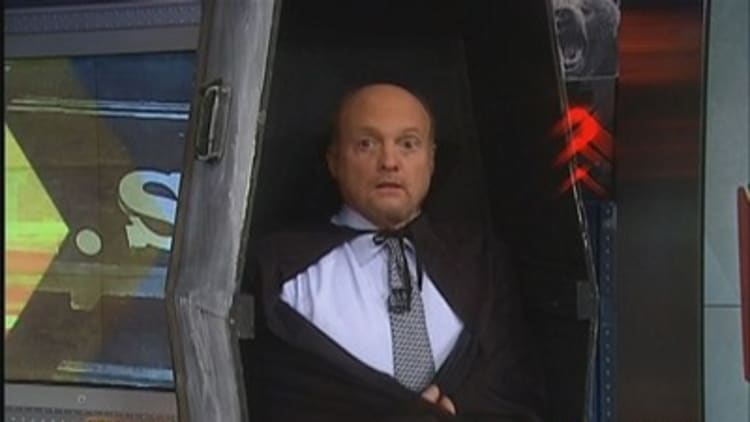The past couple years for active managers have been rough, but things have gotten better this year thanks to one key strategy: Not owning Apple.
While it once might have seemed unthinkable that avoiding the tech titan would be good for a portfolio, this year's weak performance has caused investment pros to do just that.
Apple recently lost its coveted spot as the most-owned stock by mutual funds, ceding the position to Google, though it's still No. 2 on the list.

(Read more: The most widely held stock in mutual funds is ...)
An analysis from Thomas J. Lee, chief strategist at JPMorgan Chase, found that the switch out of Apple may have fueled a 2013 performance boost that has gotten active managers within a few percentage points of their passive counterparts performance-wise.
"There are now more Russell 1000 Growth managers beating the benchmark by at least 250 (basis points, or 2.50 percentage points) than missing it (26 percent vs. 25 percent, respectively)," Lee said in his weekly note Friday. "And the overall net diffusion of beats less misses at -600bp (6.0 percentage points) (net missing), is the best figure since 2010."
Not so long ago, the number of active managers outperforming their benchmarks was in the 20 percent to 30 percent range. Active management is associated with stock-picking and managers who regularly move in and out of positions. Passive management focuses on indexes and uses portfolio rebalancing to achieve results.
Federal Reserve money-pumping had been largely to blame for active underperformance as the correlation of stocks was in the 80 percent to 90 percent range. That means that stocks were rising and falling almost in unison, with few opportunities to diversify and find winners when the rest of the market was losing.
(Read more: Taper or no taper, can't lose now: Bob Doll)
Now that correlations have broken down some, active performance is coming a bit easier.
Ditching underperformers like Apple, which is down in price more than 2 percent year-to-date, has helped. (The stock's fortunes have turned recently, though, with a gain of 8.8 percent in the fourth quarter so far.)
Lee sees an impending shift in hedge-fund preference to cyclical stocks as also helping the active-management outperformance, a trend he sees as bullish for the broader stock market.
(Read more: Oops, we did itagain: Nasdaq suffers new outage)
"The biggest risk to the outperformance of cyclicals would be events that get investors more cautious," he said. "We believe these events are less likely to be driven by fundamentals, as weaker fundamentals, near-term, would likely extend Fed action on tapering further into the future, and hence be supportive of stocks."
By CNBC's Jeff Cox. Follow him on Twitter @JeffCoxCNBCcom.






